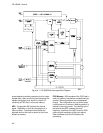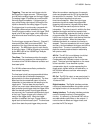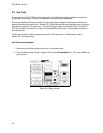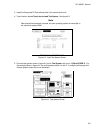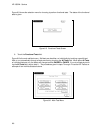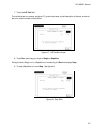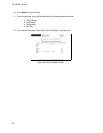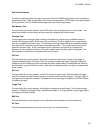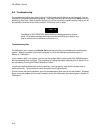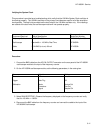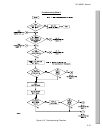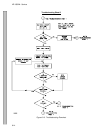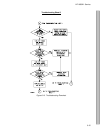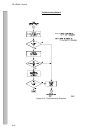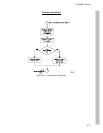
6-8. Troubleshooting
The troubleshooting flow chart given in figure 6-10 will isolate module failures to card level only. It is not
intended for component level troubleshooting. If self-tests indicate a failure, begin at the Start of the trou-
bleshooting flow chart. When a specific test fails, you will be instructed to replace a faulty card or you will
be referred to other flow charts for the isolation of the faulty card or cable.
The effects of ELECTROSTATIC DISCHARGE can damage electronic compo-
nents. Grounded wriststraps and mats should be used when you perform any
kind of service to this instrument or the cards in it.
Troubleshooting Aids
The Calibration menu contains the Service Cal mode that can help you troubleshoot the oscilloscope
module. When the problem is found and corrected, run all of the calibration procedures given in
Section IV, "Calibration."
If you suspect a fault in the system, you can load the system default values to see if the NVRAM parame-
ters have possibly been corrupted. The procedure for loading the default values is given in Section IV un-
der the heading "Loading the Default Calibration Factors."
If loading the default values does not fix the problem, you may want to verify that the system clock is
working correctly. The procedure to verify the system clock is given below.
If none of these aids find the problem, go to the troubleshooting flow chart to find the problem. As stated
above, when the problem is found and corrected, run all of the calibration procedures given in Section IV
"Calibration."
HP 16532A - Service
6-10



